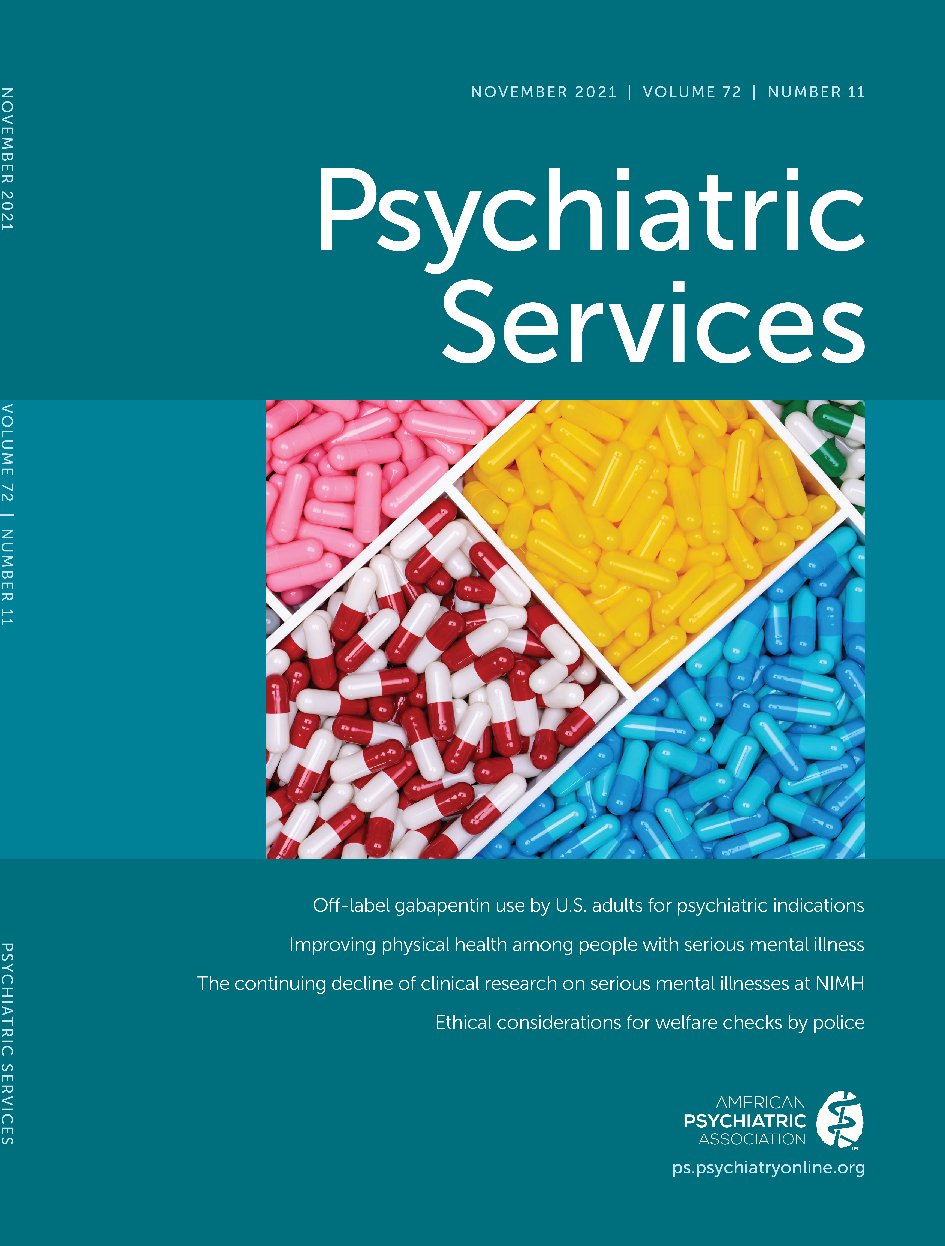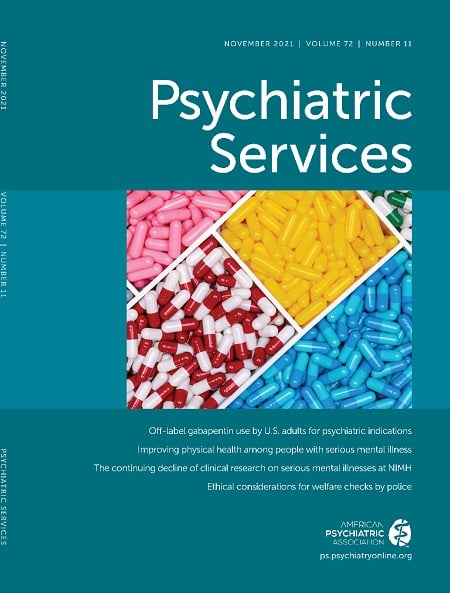Policy makers across the world have accepted recommendations from the United Nations Convention on the Rights of Persons with Disabilities (UN CRPD) (
1). Recently, instructions issued by the UN CRPD Committee discouraged any involuntary treatment and detention of people with mental disabilities, including those with serious psychiatric disorders (
2), which has sparked clinical, legal, and ethical debates (
3). Even though several authors have openly criticized the UN CRPD’s recommendation (
4,
5), coercion is definitely used in clinical psychiatry (
6). An ongoing discussion is urgently needed to explore the ethical and legal controversies surrounding deprivation of liberty and forced treatment of patients.
Following the deinstitutionalization era in psychiatry, registered involuntary hospitalizations have increased (
6,
7). Moreover, coercive practices are socially accepted because they are seen as necessary to protect people from aggression or self-harm and are firmly cemented and sanctioned in law and policy (
8). Of course, their practice and intent vary by country (
9). Szmukler (
2) raised a discussion on the potential ethical and legal ramifications of applying the UN CRPD interpretations in clinical practice. The views of service users have also been highlighted (
10). Nevertheless, the attitudes of mental health care practitioners remain of interest (
11).
Early-career psychiatrists (ECPs) are routinely at the front line of clinical practice worldwide, including in the assessment and detention of patients; hence, they are key stakeholders. In spite of this role, their professional development and transition from training to independent practice are often not studied in depth (
12). The aim of this study was to explore the opinions and experiences of ECPs regarding the current legal framework of compulsory psychiatric care in their country and possible areas for revision. In particular, we explored the experiences of ECPs in the use of compulsory treatment, such as how often they are involved and any difficulties they have faced, as well as the attitudes of ECPs toward compulsory measures in psychiatry.
Methods
Study Design and Eligibility Criteria
This study was based on an international (43 countries), cross-sectional, voluntary, and anonymous online survey of ECPs. The generally accepted definition of an ECP took into account two variables: clinician age and the duration of time since completion of specialist training. The inclusion criteria for this study were clinician age ≤40 years and a maximum of 10 years since completion of specialist training. These criteria accounted for the differences in residency duration among the 43 countries (
13).
Data Collection
We conducted the survey in English and used the QuestionPro.com online platform. The survey was open between July and August 2019, and reminders were sent 2 weeks after the study started. Survey invitations were sent out to trainee and ECP mailing lists for the World Psychiatric Association, the European Federation of Psychiatric Trainees, and the Royal Australian and New Zealand College of Psychiatrists; invitations were also published on ECP’s International Professionals Groups Facebook pages. The membership of psychiatrists in these associations implied a degree of proficiency in English as the official language for international professionals. All participants were encouraged to share the survey link with their peers to increase participation. The structured online survey was anonymous and voluntary; personal identifiable data were not collected. Data were password protected and kept confidential.
Instruments
The questionnaire, designed by three of the authors (E.C., N.P., D.B.), included information on sociodemographic characteristics (including gender and age), professional characteristics, and practices in compulsory treatment. The items assessed are provided in Results. For the purpose of this study, we defined compulsory treatment as a psychiatric intervention provided against a patient’s will.
Sample
A total of 231 ECPs from 55 countries responded. Twenty-four ECPs submitted incomplete questionnaires, with no answers to the questions of interest, and were therefore excluded. Furthermore, participants >40 years (N=38) or with >10 years of psychiatric practice (N=27) were also excluded. The final sample included 142 psychiatrists from 43 countries.
As has previously been shown, notable differences in clinical management were found among countries, likely due to differences between high-income countries (HICs) and low- and middle-income countries (LMICs) (
14) in terms of their health care systems and available resources. Therefore, using World Development Indicators (
15), we divided the sample into HIC (N=74) and LMIC (N=68) respondent groups.
Ethics and Consent
Because this study was conducted on an entirely voluntary basis by informed medical specialists, and because it did not collect personal information, approval by an ethics committee was not required. We confirmed this decision by using the U.K. National Health Service Research Ethics Committee online decision tool (
16).
Statistical Analysis
We performed statistical analysis with R, version 3.3.2, a statistical programming language, through the Microsoft R Application Network with the checkpoint package installed to control the versions of the statistical packages used. The development environment RStudio, version 1.0.136, was used for programming. We evaluated the normality of the data distribution with the Shapiro-Wilk test and found that the data were normally distributed (p>0.05). Research data are presented as arithmetic means and SDs. Student’s t tests were used for parametric data and chi-square tests for categorical variables. Statistical significance was defined as p<0.05 with the Benjamini-Hochberg correction for multiple comparisons.
Results
The countries of residence for the 142 participating ECPs are provided in
Table 1, and demographic characteristics and the professional experience of the respondents are shown in
Table 2. All respondents reported that their country provided a legal framework for the compulsory treatment of patients with psychiatric disorders. The respondents’ estimates of the proportion of patients given compulsory treatment are presented in
Table 3. More than half of the respondents in both groups (LMIC, N=36 [53%]; HIC, N=45 [61%]) reported difficulties in providing compulsory psychiatric care because of one or more of the following issues: challenging interactions with the courts, documentation issues, or moral concerns (
Table 3). In the LMIC group, the respondents who indicated that they had no difficulties in providing compulsory psychiatric care were significantly older (mean±SD, 33.4±4.2 years) than the respondents (30.6±3.2 years) who indicated any difficulties (t=2.6, df=48, p=0.012). All respondents in the HIC group who reported failure to obtain permission (such as a court order) for compulsory hospitalization in at least 10% of cases also reported difficulties in providing compulsory psychiatric care.
Respondents expressed opinions about the legal framework for providing compulsory treatments: 43% (N=61) of respondents indicated that the current mechanism should be retained as it is, whereas 53% (N=75) indicated that the current legal framework in their country needs to be revised (
Table 3).
ECPs from the HIC group who reported no difficulties in compulsory psychiatric care were somewhat satisfied with the current legal procedures in their country and wanted to keep the legislation unchanged, whereas those reporting difficulties were more inclined to propose revision to compulsory procedures (χ2=11.21, N=142, df=1, p<0.001). This finding was not specific for the LMIC group.
Discussion
To the best of our knowledge, this study is the first to compile the opinions of ECPs on the practice of compulsory treatment worldwide. The legal procedures for compulsory practice are known to vary widely among countries, resulting in different approaches for treating patients without consent. Moreover, procedures may differ on the basis of the reason for compulsory psychiatric treatment, for instance, when clinical concern is present (e.g., risk for suicide, self-harm, or danger to others) or alternatively for legal reasons (e.g., criminal insanity). Therefore, in this study, we explored the provision of compulsory psychiatric care in general and did not distinguish among the clinical indications for its use.
The ongoing debate on the moral and practical aspects of coercive measures in psychiatry is usually limited to narrow professional or national groups (
9,
17–
20); moreover, considerations focus on feedback from service users (
21–
26) as well as public attitudes on the involuntary hospitalization of patients with psychiatric disorders (
27–
29). There appears to be a general public consensus that people with psychiatric disorders may be involuntarily admitted under certain circumstances (
30). Although the vast majority of respondents (96%, N=136) in our study were confident in the existing legal framework of compulsory treatments, more than half of the participants were keen to reform legal procedures. No differences were found between the LMIC and HIC groups in the number of respondents who suggested reforming legal procedures in their countries, suggesting that the support for reform is common among ECPs across different countries. Further studies to explore changes to procedures as proposed by the ECPs would be useful. Any proposals for changes must include different points of view from the professional community, including experts in law and ethics as well as service users and their families and caregivers.
Our findings show that ECPs in the LMIC and HIC groups reported roughly equal trends in the use of compulsory psychiatric care, which confirms previous observations (
31). Any use of coercion raises moral and ethical questions that need to be resolved (
11,
32). Additionally, it is well recognized that for professionals involved in involuntary admission, the process can be both stressful and time consuming (
17). Mental health professionals are often in a double bind because they need to support patients in their recovery process but also act as guardians for society (
20). It is acknowledged that mental health professionals often feel uncomfortable using coercion, even when they believe that this approach may be beneficial and effective in certain circumstances (
33). Confirming previous findings, we observed that more than half of ECPs in our study reported difficulties in providing compulsory psychiatric care, mostly because of complex bureaucratic legal processes as well as the ethical and moral dilemmas of psychiatric detention. Interestingly, in the LMIC group, the respondents who reported no difficulties in providing compulsory psychiatric care were older and more clinically experienced, suggesting that with clinical experience, clinicians may feel more comfortable detaining and treating patients against their will (
11).
No global agreement exists on what policies should be followed in involuntary psychiatric care: policy design and choice remain a national prerogative based on local needs and ideology (
34). This study illustrates that in all countries surveyed, legal frameworks for compulsory treatment exist; however, challenges remain that need to be addressed. This study also confirmed that ECPs are involved in the practice of compulsory treatment. This role makes them key stakeholders in any future discussions and changes to the relevant legislation. Further research on ethics and a review of mental health laws across different countries are urgently needed and should include the views and experiences of ECPs.
A key strength of this study was the breadth of countries it covers. However, we recognize that our study also had several potential weaknesses. Because it was obtained through an online survey, the sample may have not been representative of all ECPs. We are acutely aware that the response rate was low and the sample size small. Response rates also varied by country, some as low as only one respondent per country, and so we grouped participants by country income level. As a self-report questionnaire, it was subject to recall and reporting biases as well as to social desirability bias. The survey presumably involved specialists for whom the issue of compulsory psychiatric care was of professional interest, and this interest might explain the high frequency of compulsory treatment experience reported by the respondents. This study was cross-sectional; longitudinal studies may enable a better focus on training and ethical aspects of education over time. Future research could include more senior psychiatrists and compare their attitudes with those of ECPs.

